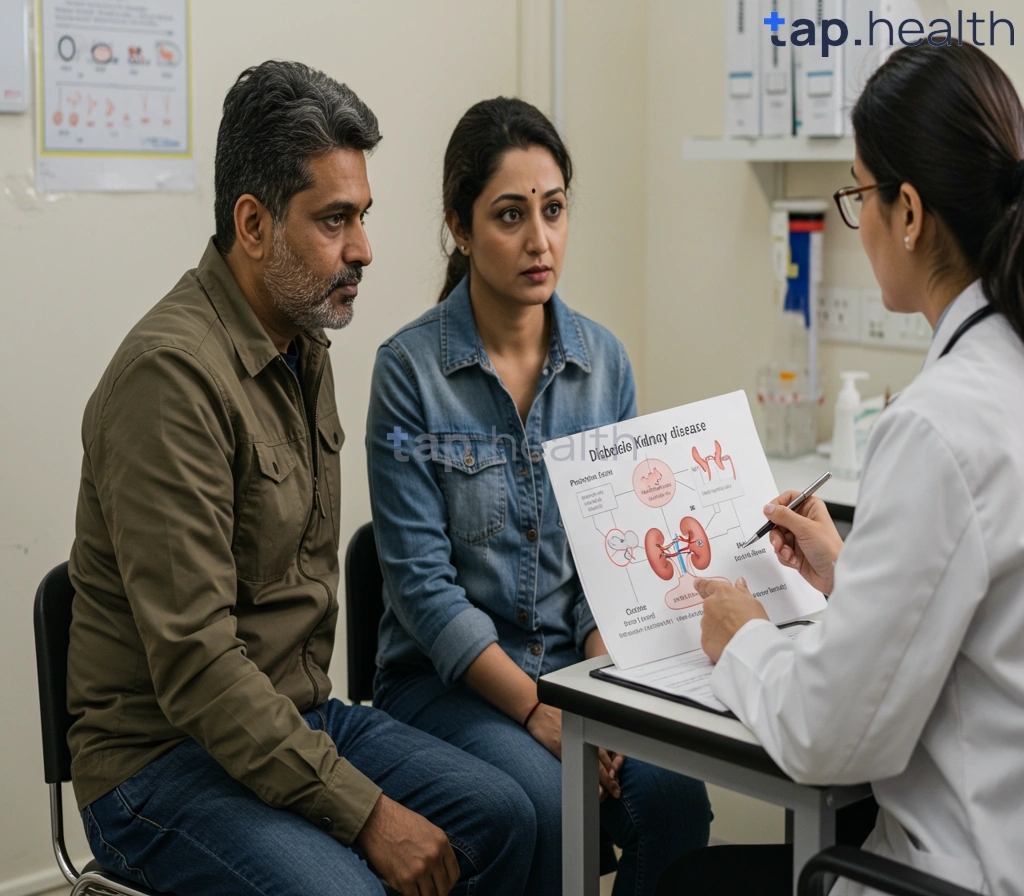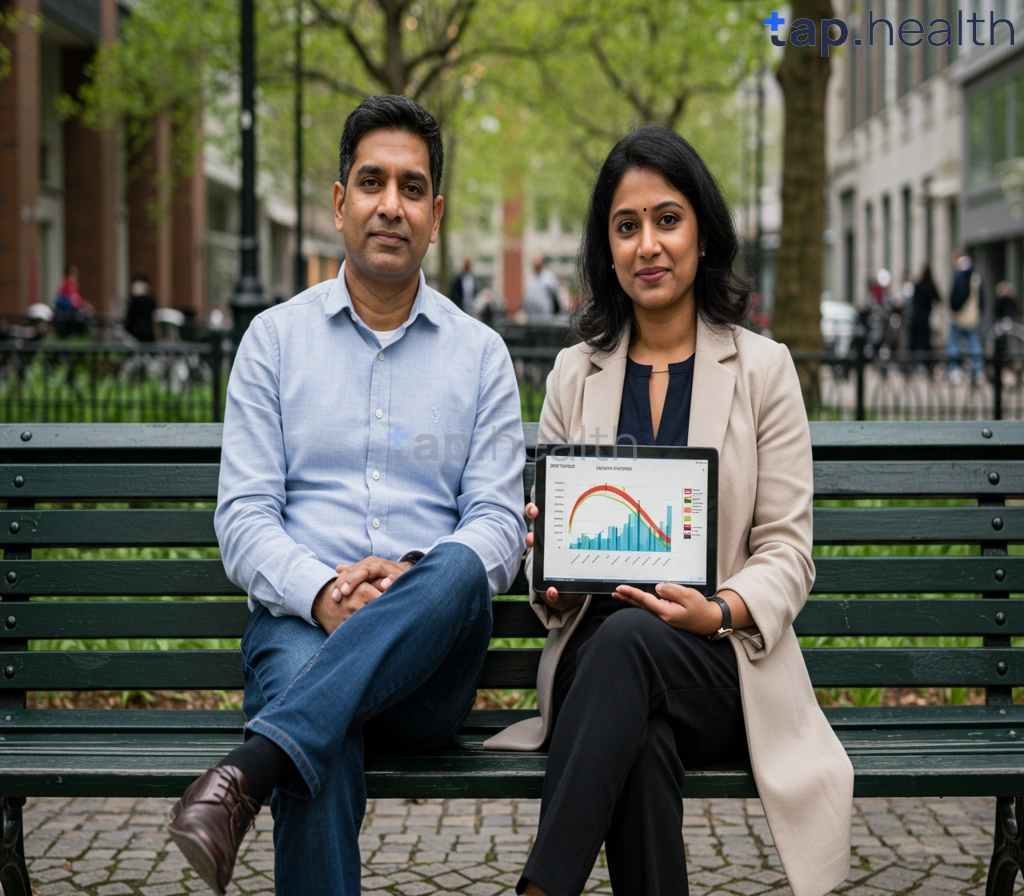Table of Contents
- Understanding Diabetes in Tweens and Teens
- Managing Diabetes: A Teen and Tween’s Guide
- Healthy Habits for Teens with Diabetes
- Diabetes and Adolescence: Nutritional Strategies
- Navigating Social Life with Diabetes as a Teen
- Frequently Asked Questions
- References
Navigating the teenage years is challenging enough, but throw in the complexities of managing diabetes, and it can feel overwhelming. This is why we’ve created Navigating Diabetes: A Guide to Tween and Teen Wellbeing – a resource designed specifically for young people living with diabetes and their families. We understand the unique hurdles you face, from managing blood sugar levels during growth spurts to navigating social situations. Here, you’ll find practical advice, relatable stories, and expert insights to help you thrive, not just survive, with diabetes. Let’s work together to make diabetes management easier and empower you to live your best life!
Understanding Diabetes in Tweens and Teens
The challenges of managing diabetes are significant at any age, but navigating this condition during the turbulent tween and teen years presents unique complexities. In the United States, approximately 35 per 10,000 youths have a diagnosed form of diabetes, highlighting the prevalence of this condition even within younger populations. Learn more about the statistics and understand the importance of early diagnosis and management. This is particularly relevant in diverse regions like India and tropical countries, where access to healthcare and diabetes awareness initiatives may vary.
The Unique Challenges of Adolescent Diabetes Management
Adolescents face specific hurdles in managing their diabetes. The hormonal changes during puberty can significantly impact blood sugar levels, requiring frequent adjustments to insulin dosages or medication. Social pressures and the desire for independence can make adhering to treatment plans challenging. Furthermore, dietary habits, often influenced by peer groups and cultural norms, can be difficult to reconcile with diabetic management plans. For example, many traditional Indian and tropical dishes may be high in carbohydrates or fats, requiring careful consideration and modification. Open communication with healthcare professionals and family support are crucial to overcoming these obstacles.
Practical Tips for Success
Empowering teens to actively participate in their care is key. This includes teaching them how to monitor their blood sugar levels, administer insulin (if applicable), and make informed food choices. Educating families on culturally appropriate meal planning and incorporating traditional foods in a healthy way is important. Seeking out support groups or online communities can also provide invaluable emotional support and practical advice from others facing similar challenges. Regular check-ups with a healthcare professional are essential to monitor progress and adjust treatment plans as needed. Remember, successful diabetes management in adolescence is a collaborative effort. For further insights into the specific challenges faced by teenagers, you might find Diabetes in Teenagers: Understanding the Impact helpful.
Seeking Support in India and Tropical Countries
In India and other tropical regions, accessing specialized diabetic care for adolescents might require proactive steps. Research local hospitals and clinics with pediatric endocrinology departments. Seek out support groups and community resources that cater to the specific needs of young people with diabetes in your region. Remember, you are not alone, and with the right support and resources, your teen can live a healthy and fulfilling life despite the challenges of diabetes. As you consider long-term management, Managing Diabetes as You Age: Challenges and Solutions offers valuable perspectives.
Managing Diabetes: A Teen and Tween’s Guide
Living with diabetes as a teen or tween can feel overwhelming, but it’s manageable with the right knowledge and support. Understanding your condition is key, and remember you’re not alone. A significant portion of people living with diabetes are between the ages of 20 and 64, highlighting the importance of early management and lifelong care. Data shows that a large percentage of the global population, including those in India and tropical countries, are managing diabetes.
Understanding Your Diabetes
Firstly, learn about your specific type of diabetes (Type 1 or Type 2). This understanding empowers you to make informed decisions about your health. Understanding your blood sugar levels and how different foods and activities affect them is crucial. In tropical climates, hydration is especially important—staying well-hydrated can help regulate blood sugar levels. Remember to consult your doctor or diabetes educator for personalized guidance.
Practical Tips for Daily Life
Maintaining a healthy diet tailored to your region’s food staples is essential. This means incorporating plenty of fresh fruits and vegetables readily available in your area. Regular exercise is also critical. Find activities you enjoy, whether it’s playing a sport, dancing, or simply walking. Remember to always carry snacks to prevent blood sugar drops, especially important in hot climates. Strong family and peer support is incredibly beneficial for navigating the challenges of managing diabetes. For parents seeking guidance, Tips for Parents of Kids with Type 1 Diabetes: Complete Guide offers valuable insights.
Seeking Support in Your Community
Connecting with other young people living with diabetes can provide invaluable support and understanding. Look for local diabetes support groups or online communities tailored to the Indian and tropical contexts. Many organizations offer resources and educational programs specific to these regions, making it easier to access relevant information and support. Don’t hesitate to reach out to your healthcare team for any questions or concerns. Taking control of your diabetes now sets you up for a healthier, happier future. For more practical tips on managing your diabetes effectively, check out 10 Proven Tips to Effectively Manage Diabetes | Simple Guide.
Healthy Habits for Teens with Diabetes
Managing diabetes as a teenager can feel challenging, especially in the context of a vibrant social life and the pressures of adolescence. However, establishing healthy habits early on is crucial for long-term wellbeing. Did you know that daily consumption of sugary beverages raises the risk of developing diabetes by 26%? This statistic highlights the importance of making informed choices about your diet.
Nutrition: Fueling Your Body Right
In India and tropical countries, access to fresh fruits and vegetables is often abundant. Prioritize these in your diet. Focus on whole grains like brown rice and millets, which are common staples and offer sustained energy release, unlike sugary processed foods. Limit your intake of sugary drinks, including sodas and fruit juices, as these can significantly impact blood sugar levels. Learn to read food labels carefully, paying attention to sugar content.
Active Lifestyle: Moving Towards Health
Staying active is just as important as healthy eating. Incorporate regular physical activity into your routine. This doesn’t have to mean intense workouts; a brisk walk, cycling, or engaging in traditional Indian games like kabaddi or badminton can all be beneficial. Aim for at least 30 minutes of moderate-intensity exercise most days of the week. Find activities you enjoy to make it sustainable.
Monitoring and Management: Staying on Track
Regular blood sugar monitoring is essential for effective diabetes management. Work closely with your doctor or diabetes educator to understand your blood sugar targets and how to adjust your diet and activity levels accordingly. Don’t hesitate to ask questions and seek support from your healthcare team. Open communication is key to managing your diabetes effectively.
Seeking Support: You’re Not Alone
Remember, managing diabetes is a journey, not a destination. Connect with other teens with diabetes, either through online communities or support groups in your local area. Sharing experiences and finding encouragement from peers can make a significant difference in your overall wellbeing. Talk to your family and friends about your diabetes and how they can support you. Building a strong support network is crucial for long-term success. Reach out to your local diabetes clinic for resources and support specific to your region. For more tips on establishing healthy habits, check out How to Build Habits That Help Control Blood Sugar Levels. Learning to manage your blood sugar effectively is a key component of overall health, and this article provides further insight into developing sustainable practices. For those with Type 1 Diabetes, 10 Daily Habits for Better Type 1 Diabetes Control offers specific strategies for daily management.
Diabetes and Adolescence: Nutritional Strategies
Navigating the complexities of diabetes during the tween and teen years presents unique challenges, especially in the context of diverse dietary habits prevalent across Indian and tropical countries. It’s crucial to remember that over 1.2 million children and adolescents globally live with type 1 diabetes (source), highlighting the urgent need for tailored nutritional support. This is particularly important given the rapid growth and developmental changes occurring during adolescence.
Managing Carbohydrate Intake:
Careful carbohydrate counting is essential for effective blood sugar management. This means understanding the carbohydrate content of commonly consumed foods in Indian and tropical diets, such as rice, roti, various dals, fruits, and sweets. Portion control and mindful snacking are key. Substituting refined carbohydrates with whole grains, like brown rice or millets, can significantly improve blood sugar control.
Prioritizing Nutrient-Rich Foods:
A diet rich in fruits, vegetables, and lean proteins is vital. Encourage the consumption of seasonal fruits readily available in the region, ensuring a diverse intake of vitamins and minerals. Lean proteins, such as fish, lentils, and chicken, help maintain healthy blood sugar levels and support growth. Incorporating spices commonly used in Indian cuisine, known for their potential health benefits, can add flavor and nutritional value. Emotional eating can also significantly impact blood sugar levels, so understanding and addressing this through strategies outlined in Addressing Emotional Eating in Diabetes: Strategies is crucial.
Hydration and Healthy Fats:
Adequate hydration is crucial. Encourage the consumption of water throughout the day, rather than sugary drinks. Incorporating healthy fats, like those found in nuts, seeds, and avocados, in moderation, can support overall health and well-being, but should be balanced carefully with carbohydrate intake. It’s also important to be aware of the link between Understanding the Link Between Diabetes and Obesity, as weight management plays a significant role in diabetes management.
Seeking Professional Guidance:
Finally, collaboration with a registered dietitian or certified diabetes educator is paramount. They can provide personalized dietary plans that address the specific needs of the adolescent and their cultural context, ensuring optimal blood sugar control and overall health. Regular check-ups and open communication with healthcare providers are essential for successful diabetes management throughout the adolescent years.
Navigating Social Life with Diabetes as a Teen
Teenage years are already a rollercoaster of emotions and social changes. Adding diabetes to the mix can feel overwhelming, especially in a rapidly urbanizing India where youth-onset diabetes is increasing by 4% annually. But it doesn’t have to define your social life. Managing diabetes effectively empowers you to participate fully and confidently.
Building Confidence and Connection
Open communication is key. Talk to your friends about your diabetes – what it means for you, and what they can do to support you. Many will be understanding and supportive once they know what to expect. Don’t be afraid to explain your needs, like needing extra time to eat or having snacks readily available. Finding common ground beyond diabetes strengthens bonds. Join clubs, participate in sports (with your doctor’s approval), and pursue hobbies – diabetes doesn’t need to limit your interests.
Managing Diabetes Socially
Social situations often involve food. Learning to carefully plan your meals and snacks is crucial. This involves understanding carbohydrate counting and insulin management. It may require some extra preparation before social events, but with practice, it becomes second nature. Don’t hesitate to discreetly check your blood sugar levels when needed. Carrying essential supplies like glucose tablets, insulin, and snacks is also vital, especially in hot and humid tropical climates. Planning ahead is especially important if you’re Traveling with Diabetes, as you’ll need to consider different time zones and food availability.
Seeking Support
Remember, you’re not alone. Connect with other teens living with diabetes – either online or through local support groups. Sharing experiences and advice can be incredibly valuable. Open communication with your parents and healthcare team is also essential for managing your condition effectively and navigating social situations with confidence. They can provide guidance and support when dealing with challenges. In India, there are numerous resources available to help you manage your diabetes and thrive socially. For those considering social events with alcohol, it’s helpful to learn How to Safely Enjoy Alcohol While Managing Diabetes to make informed choices.
Frequently Asked Questions on Navigating Diabetes: A Guide to Tween and Teen Wellbeing
Q1. How does managing diabetes differ for teens compared to adults?
Teenage diabetes management is unique due to hormonal changes affecting blood sugar and social pressures influencing treatment adherence. Teens need to actively participate in their care, but family support and open communication with healthcare providers are crucial.
Q2. What role does diet and exercise play in managing teenage diabetes?
A healthy diet with culturally appropriate meal planning, incorporating fresh produce, and regular exercise are vital for managing blood sugar levels. Working with a healthcare professional to create a personalized plan is recommended.
Q3. What are the challenges of managing diabetes in specific cultural contexts, such as India?
Cultural factors in regions like India influence dietary habits and healthcare access. Adapting diabetes management to incorporate readily available foods and local customs is important for successful treatment.
Q4. How can I support my teenager in managing their diabetes effectively?
Support your teen by encouraging active participation in their care, facilitating open communication with healthcare professionals, and providing emotional and practical assistance. Consider support groups or online communities for additional help.
Q5. What is the importance of early diagnosis and regular check-ups for teenagers with diabetes?
Early diagnosis and consistent monitoring through regular check-ups are essential for long-term health and well-being. Early intervention helps prevent long-term complications and ensures effective management.
References
- A Practical Guide to Integrated Type 2 Diabetes Care: https://www.hse.ie/eng/services/list/2/primarycare/east-coast-diabetes-service/management-of-type-2-diabetes/diabetes-and-pregnancy/icgp-guide-to-integrated-type-2.pdf
- Children with Diabetes : A resourse guide for families and school. : https://www.health.ny.gov/publications/0944.pdf




